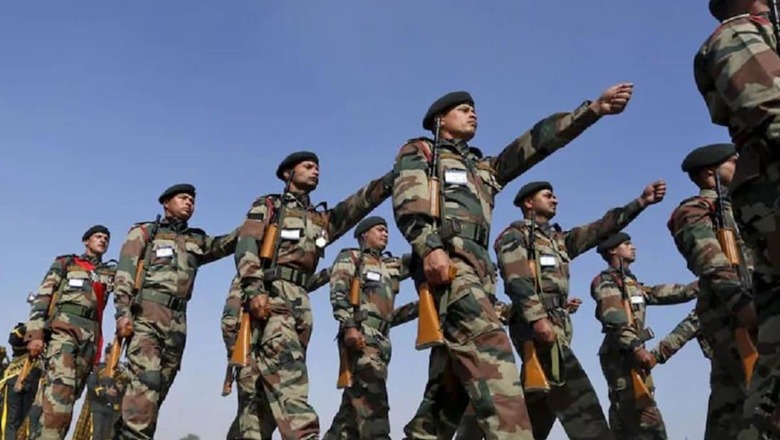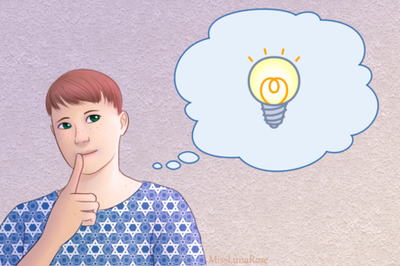
views
The Indian Army has started an initiative called Project Udbhav to rediscover the “profound Indic heritage of statecraft and strategic thoughts” derived from ancient Indian texts of “statecraft, warcraft, diplomacy and grand strategy”. The Army has partnered with the United Service Institution of India, which is the country’s oldest think-tank. To further this goal, the USI will organise a military heritage festival on 21 and 22 October. The festival aims to familiarise future thought leaders with the dynamics of comprehensive national security, with a special emphasis on India’s strategic culture, military heritage, education, modernisation of security forces, and ‘Atmanirbhar Bharat’.
In a comprehensive statement, the Army said, “The project endeavours to explore India’s rich historical narratives in the realms of statecraft and strategic thoughts. It focuses on a broad spectrum including indigenous military systems, historical texts, regional texts and kingdoms, thematic studies, and intricate Kautilya Studies…The goal is to understand the profound depths of indigenous military systems, their evolution, strategies that have been passed down through the ages, and the strategic thought processes that have governed the land for millennia.”
Rediscovering Ancient Indian Statecraft and Military Wisdom
The word ‘Udbhav’ itself means ‘emergence’ or ‘to arise’. At a time when India is focusing on shedding colonial vestiges, the Army and Defence Ministry’s decision to popularise ancient Indian literature dealing with statecraft, military tactics and warfare will strengthen India’s strategic and military thinking. There is far too much knowledge in ancient Indian texts that has been ignored for long. After all, if China’s Sun Tsu and his Art of War can gain global popularity, so can ancient Indian texts.
Besides, India can gain a distinct upper hand against its adversaries by popularising the knowledge of ancient literature among all officers, strategists and decision-makers within the Army. The Defence Ministry should, in fact, push for Project Udbhav to be institutionalised in all three forces.
The decision to learn from Indian philosophy and statecraft ideally should have been taken long ago. But it’s always better late than never. Officials say Project Udbhav will see the Army drawing wisdom from Kautilya’s Arthashastra, Kamandaka’s Nitisara and Thiruvalluvar’s Thirukkural for lessons on statecraft, strategy, diplomacy and warfare. While citing Italian Machiavelli or Chinese Sun Tsu as war literature is in vogue, as far as top military minds go, indigenous wisdom is dispelled as a regression in discourse. This mindset needs to change and a decolonised thought process is required to drive that change. This is precisely what Project Udbhav seeks to achieve.
Some critics are already arguing that the Army should not lose sight of modern war while reflecting on ancient literature. This is exactly what not having an open mind looks like. After all, the MoD statement did state very clearly that the aim of this project is to integrate age-old wisdom with modern military pedagogy while developing an “indigenous strategic vocabulary”, which is deeply rooted in India’s “multifaceted philosophical and cultural tapestry.” The natural urge of some naysayers to discount the value and relevance of historical Indian texts in contemporary times is what has prevented the country from embracing ancient knowledge that is still relevant today.
Wars have been fought on the Indian subcontinent for millennia. There is a treasure trove of political and strategic wisdom in India’s war literature. Even a person with the most basic of military and strategic sense knows that ancient Indic literature and the knowledge contained therein is timeless. It has stood the test of times – for millennia and can play a crucial role even today in indigenising the military’s mind frame on fighting wars and countering both internal and external threats. Therefore, the Indian Army’s decision to harmonise indigenous strategic thought with the modern context is a step in the right direction.
By reintroducing these classical teachings into contemporary military and strategic domains, the Army aims to nurture its officers to apply ancient wisdom in modern scenarios and also allow a more profound understanding of international relations and foreign cultures.
Big Step Towards Military “Indigenisation”
Indigenisation and self-reliance are buzzwords across India. From stopping imports of various military gear, weapon systems and spare parts to now embracing the knowledge of ancient Indian texts, the country’s defence indigenisation programme is definitely wholesome and holistic.
Remember, Project Udbhav comes in the backdrop of India’s Armed Forces taking steps to erase colonial traditions. The navy, for example, dropped the Cross of St George and has adopted a new ensign with the flag drawing inspiration from the seal of Chhatrapati Shivaji Maharaj. It also ended the practice of senior officers carrying batons. The Defence Ministry, in another example, launched a drive to rename British-era cantonments as military stations.
Today, India is moving towards procurement of indigenous fighter aircraft, artillery guns, armed UAVs and even underwater swarm drones. It is significant that the push to draw knowledge and inspiration from ancient Indian literature coincides with the country’s self-reliance push. While India is steadily moving in the direction of fulfilling its military-technical needs domestically, it is also the time to look inward and at invaluable historical texts that can guide India’s future wars. After all, history serves a purpose – it teaches lessons from the past, learning for which we can adapt in the present and prepare for the future.
Views expressed in the above piece are personal and solely that of the author. They do not necessarily reflect News18’s views.




















Comments
0 comment